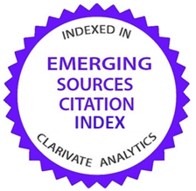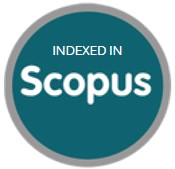La atribución pública como reguladora de emociones
Manipulación de los efectos políticos de las hostilidades
DOI:
https://doi.org/10.21830/19006586.528Palabras clave:
Atribución; emoción; estrategia; política; psicología; seguridadResumen
Debates about attribution in security and strategic studies often focus on the technical feasibility of the process at the expense of its political utility. The purpose of this paper is to draw attention to the emotional effects of attribution. The general argument of this paper is that public attribution can constitute a mechanism for converting effects produced by hostile activities into favorable circumstances by regulating emotions of domestic populations. Allocating responsibility to one’s own identity is likely to elicit guilt, shame or pride, blaming the specific “other” is likely to elicit anger, and blaming the impersonal circumstances is likely to elicit sadness. Anger and pride can be harnessed to support escalatory foreign policies. Guilt, shame and sadness are likely to be used for de-escalatory policies of restraint.
Descargas
Referencias bibliográficas
Angie, A., Connelly, S., Waples, E., & Kligyte, V. (2011). The influence of discrete emotions on judgement and decision-making: A meta-analytic review. Cognition & Emotion, 25(8), 1393-1422. https://doi.10.1080/02699931.2010.55075
Ariffin, Y. (2016). How emotions can explain outcomes in international relations. In Y. Ariffin, J. Coicaud, & V. Popovski (Eds.), Emotions in international politics (pp. 1-16). New York, NY: Cambridge University Press.
Bleske-Rechek, A., Gunseor, M. M., & Maly, J. R. (2018). Does the language fit the evidence? Unwarranted causal language in psychological scientists’ scholarly work. The Behavior Therapist, 41(8), 341-352.
Bishop, M., & Goldman, E. (2003). The strategy and tactics of information warfare. Contemporary Security Policy, 24(1), 113-139. https://doi.10.1080/13523260312331271839
Bush, G. (2011). Address to Joint Session of Congress Following 9/11 Attacks. Retrieved from https://americanrhetoric.com/speeches/gwbush911jointsessionspeech.htm
Caltagirone, S., Pendergast, A., & Betz, C. (2013). The diamond model of intrusion analysis. Hanover, Germany: Center for Cyber Intelligence Analysis and Threat.
Clausewitz, C. von. (2000). On war. In R. Peters (Ed.), The book of war: Sun-Tzu’s “The Art of War” & Karl von Clausewitz’s “On War” (pp. 265-958). New York, NY: The Modern Library.
Clore, G. L., & Ortony, A. (2008). Appraisal theories: How cognition shapes affect into emotion. In M. Lewis, J. M. Haviland-Jones, & L. F. Barrett (Eds.), Handbook of emotions (3rd Ed., pp. 628-642). New York, NY: Guilford Press.
Crawford, N. C. (2000). The passion of world politics: Propositions on emotion and emotional relationships. International Security, 24(4), 116-156.
Crawford, N. C. (2013). Emotions and international security: Cave! Hic Libido. Critical Studies on Security, 1(1), 121-123. https://doi.10.1080/21624887.2013.790218
Crawford, N. C. (2014). Institutionalizing passion in world politics: fear and empathy. International Theory, 6(3), 535-55. https://10.1017/S1752971914000256
Damasio, A. (2006). Descartes’ error: Emotion, reason and the human brain. London, England: Vintage.
Duyvesteyn, I. (2017). Global strategic studies: A manifesto. Journal of Strategic Studies, 40(3), 347-357. https://doi.10.1080/01402390.2016.1269228
Edwards, B., Furnas, A., Forrest, S., & Axelrod, R. (2017). Strategic aspects of cyberattack, attribution, and blame. Proceeding of the National Academy of Sciences of the USA, 114(11), 2825-2830. https://doi.10.1073/pnas.1700442114
Egloff, F. J., & Wenger, A. (2019). Public attribution of cyber incidents. In F. Merz (Ed.), CSS Analyses in Security Policy. Zurich, Switzerland: Center for Security Studies.
Fitton, O. (2016). Cyber operations and gray zones: Challenges for NATO. Connections: The Quarterly Journal, 15(2), 109-119.
Frijda, N. H., Manstead, A. S. R., & Bem, S. (2000). The influence of emotions on beliefs. In N. H. Frijda, A. S. R. Manstead, & S. Bem (Eds.), Emotions and beliefs: How feelings influence thoughts (pp. 1-9). Cambridge, England: Cambridge University Press.
Frijda, N. H., & Mesquita, B. (2000). Beliefs through emotions. In N. H. Frijda, A. S. R. Manstead, & S. Bem (Eds.), Emotions and beliefs: How feelings influence thoughts (pp. 45-64). Cambridge, England: Cambridge University Press.
Garry, J. (2014). Emotions and voting in EU referendums. European Union Politics, 15(2), 235-254. https://doi.10.1177/1465116513514780
Gray, C. (2011). The strategy bridge: Theory for practice. Oxford, England: Oxford University Press.
Greenberg, A. (2018, August 22). The untold story of NotPetya, the most devastating cyberattack in history. WIRED. Retrieved from https://www.wired.com/story/notpetya-cyberattack-ukraine-russia-codecrashed-the-world/
Grindal, K., Kuerbis, B., Badiei, F., & Mueller, M. (2018, August). Is it time to institutionalize cyber-attribution? Internet Governance Project White Paper. Retrieved from https://www.internetgovernance.org/research/is-it-time-to-institutionalize-cyber-attribution/
Hacker, P. (2018). Passions: The study of human nature. Oxford, England: John Wiley & Sons Ltd.
Hare, F. (2012). The significance of attribution to cyberspace coercion: A political perspective. In C. Czosseck, R. Ottis, & K. Ziolkowski (Eds.), 4th International Conference on Cyber Conflict (pp. 125-139). Tallinn, Estonia: NATO CCD COE Publications.
Hall, T. (2015). Emotional diplomacy. New York, NY: Cornell University Press.
Jervis, R. (2017). Perception and misperception in international relations. Princeton, NJ: Princeton University Press.
Kavanagh, D. J., & Bower, G. H. (1985). Mood and self- efficacy: Impact of joy and sadness on perceived capabilities. Cognitive Therapy and Research, 9(5), 507-525.
Kello, L. (2017). The virtual weapon and international order (pp. 198-200). New Haven, The United States of America: Yale University Press.
Kendrick, O. (2006). The My Lai Massacre in American history and memory. Manchester, England: Manchester University Press.
Kilduff, M., & Menges, J. (2015). Group emotions: Cutting the Gordion knots concerning terms, levels-of-analysis, and processes. The Academy of Management Annals, 9(1), 1- 117. https://doi.10.1080/19416520.2015.1033148
Kim, J. (2015). The effects of collective anger and fear on policy support in response to terrorist attacks. The Journal of Social Psychology, 156(5), 455-468. https://doi.10.1080/00224545.2015.1119669
Kleef, G., & Fischer, A. (2016). Emotional collectives: How groups shape emotions and emotions shape groups. Cognition and Emotion, 30(1), 3-19. https://doi.10.1080/02699931.2015.1081349
Lazarus, R. S. (2001). Relational meaning and discrete emotions. In K. R. Scherer, A. Schorr, & T. Johnstone (Eds.), Appraisal process in emotion: Theory, methods, research (pp. 37-67). Oxford, England: Oxford University Press.
Lebow, N. R. (2008). A cultural theory of international relations. New York, NY: Cambridge University Press.
Lerner, J., Li, Y., Valdesolo, P., & Kassam, K. (2015). Emotion and decision making. Annual Review of Psychology, 66(1), 799-823. https://doi.10.1146/annurev-psych-010213-115043
Lerner, J. S., Gonzalez, R. M., Small, D. A., & Fischhoff, B. (2003). Emotion and perceived risks of terrorism: A national field experiment. Psychological Science, 14(2), 144-150. http://www.jstor.org/stable/40063785
Lerner, J., & Keltner, D. (2000). Beyond valence: Toward a model of emotion-specific influences on judgement and choice. Cognition and Emotion, 14(4), 473-493. https://doi.10.1080/026999300402763
Libicki, M. C. (2009) Cyberdeterrence and cyberwar. Santa Monica, CA: RAND Corporation.
Iasiello, E. (2014). Is cyber deterrence an illusory course of action. Journal of Strategic Security, 7(1), 54-67. https://doi.10.5038/1944-0472.7.1.5
Markwica, R. (2018). Emotional choices: How the logic of affect shapes coercive diplomacy. Oxford, England: Oxford University Press.
Maos, M., & Gross, J. J. (2015). Emotion regulation: Implications for political science and international relations. Paper prepared for presentation at the workshop on The Politics of Non-Proportionate Policy Response. Warsaw, Poland: ECPR Joint Sessions of Workshops.
McDermott, R., Lopez, A. C., & Hatemi, P. K. (2017). Blunt not the heart, enrage it: The psychology of revenge and deterrence. Psychology of War, 1(1), 68-88.
Meier, A. N., Schmid, L., & Stutzer, A. (2019). Rain, emotions and voting for the status quo. European Economic Review, 119(2), 434-451. https://doi.10.1016/j.euroecorev.2019.07.014
Mendible, M. (2016). American shame: Stigma and the body politic. Bloomington, IN: Indiana University Press.
Mercer, J. (2010). Emotional beliefs. International Organization, 64(1), 1-31. https://doi.10.1017/S0020818309990221
Mercer, J. (2013). Emotion and strategy in the Korean War. International Organization, 67(2), 221-252. https://doi.org/10.1017/S0020818313000015
Mercer, J. (2014). Feeling like a state: Social emotion and identity. International Theory, 6(3), 515-535. https://doi.10.1017/S1752971914000244
Milevski, L. (2019). Battle and its emotive effects in war termination. Conference Paper. Oxford, England: Changing Character of War Conference.
Modderkolk, H. (2018, January 25). Dutch agencies provide crucial intel about Russia’s interference in US-elections. de Volkskrant. Retrieved from https://www.volkskrant.nl/wetenschap/dutch-agencies-provide-crucial-intel-about-russia-s-interference-in-us-elections~b4f8111b/?referer=https%3A%2F%2Fwww.google.com%2F
Mohan, B. (2016). A demonstration of the discourse dissection model (DDM) with an analysis of FD Roosevelt’s “Pearl Harbour address to the nation”. Journal of Theoretical Linguistics, 13(1), 62-86.
Moors, A. (2013). On the causal role of appraisal in emotion. Emotion Review, 5(2), 132-140. https://doi.10.1177/1754073912463601
Moors, A., Ellsworth, P., Scherer, K. R., & Frijda, N. H. (2013). Appraisal theories of emotion: State of the art and future development. Emotion Review, 5(2), 119-124. https://doi.10.1177/1754073912468165
Nakashima, E., & Rucker, P. (2017, December 19). U.S. declares North Korea carried out massive wannacry cyberattack. Washington Post. Retrieved from https://www.washingtonpost.com/world/national-security/us-set-to-declare-north-korea-carried-out-massive-wannacry-cyber-attack/2017/12/18/509deb1ce446-11e7-a65d-1ac0fd7f097e_story.html
Nye, J. (2017). Deterrence and dissuasion in cyberspace. International Security, 41(3), 44-71.
Office of the Director of National Intelligence. (2018, September). A guide to cyber attribution. Retrieved from https://www.dni.gov/files/CTIIC/documents/ODNI_A_Guide_to_Cyber_Attribution.pdf
Payne, K. (2018). Strategy, evolution, and war. Washington: Georgetown University Press.
Payne, K. (2015). The psychology of strategy: Exploring rationality in the Vietnam War. Oxford, England: Oxford University Press.
Prince, C. (2018, October 8). Countering Russian cyber operations. RUSI. Retrieved from https://rusi.org/commentary/countering-russian-cyber-operations
Prokop, A. (2016, Jul 18). Why Republicans want Obama to denounce “radical Islam” and why he won’t do it. Vox. Retrieved from https://www.vox.com/2015/11/16/9745334/obama-radical-islam-isis
Rid, T., & Buchanan, B. (2015). Attributing cyber attacks. The Journal of Strategic Studies, 38(1-2), 4-37.
Rolls, E. (2014). Emotion and decision-making explained. Oxford, England: Oxford University Press.
Roseman, I. J. (2001). A model of appraisal in the emotion system: Integrating theory, research, and applications. In K. R. Scherer, A. Schorr, & T. Johnstone (Eds.), Appraisal process in emotion: Theory, methods, research. Oxford, England: Oxford University.
Roseman, I. J., & Smith, C. A. (2001). Appraisal theory. In K. R. Scherer, A. Schorr, & T. Johnstone (Eds.), Appraisal process in emotion: Theory, methods, research (pp. 1-20). Oxford, England: Oxford University Press.
Ross, A. A. G. (2014). Mixed emotions: Beyond fear and hatred in international conflict. Chicago: The University of Chicago Press.
Rythoven, E. V. (2015). Learning to feel, learning to fear? Emotions, imaginaries, and limits in the politics of securitization. Security Dialogue, 46(5), 458-475. https://doi.10.1177/0967010615574766
Sadler, M. S., Lineberger, M., Correll, J., & Park, B. (2005). Emotions, attributions, and policy endorsement in response to the September 11th terrorist attacks. Basic and Applied Social Psychology, 27(3), 249-258.
Scherer, K. (2001a). Appraisal considered as a process of multilevel sequential checking. In K. R. Scherer, A. Schorr, & T. Johnstone (Eds.), Appraisal process in emotion: Theory, methods, research. Oxford, England: Oxford University Press.
Scherer, K. (2001b). The nature and the study of appraisal: A review of the issues. In K. R. Scherer, A. Schorr, & T. Johnstone (Eds.), Appraisal process in emotion: Theory, methods, research (pp. 369-390). Oxford, England: Oxford University Press.
Scheve, Ch., & Ismer, S. (2013). Towards a theory of collective emotions. Emotion Review, 5(4), 406-413. https://doi.10.1177/1754073913484170
Schorr, A. (2001). Appraisal: The evolution of an idea. In K. R. Scherer, A. Schorr, & T. Johnstone (Eds.), Appraisal process in emotion: Theory, methods, research (pp. 20-34). Oxford, England: Oxford University Press.
Schulzske, M. (2018). The politics of attributing blame for cyberattacks and the costs of uncertainty. Perspectives on Politics, 16(4), 954-968. https://doi.org/10.1017/S153759271800110X
Schwartz, G. E., & Weinberger, D. A. (1980). Patterns of emotional responses to affective situations: Relations among happiness, sadness, anger, fear, depression, and anxiety. Motivation and Emotion, 4(2), 148-170.https://doi.10.1007/BF00995197
Skitka, L. J., Bauman, Ch. W., Aramovich, N. P., & Morgan, S. G. (2006). Confrontational and preventative policy responses to terrorism: Anger wants a fight and fear wants “Them” to go away. Basic and Applied Social Psychology, 28(4), 375-384.
Small, D. A., Lerner, J. S., & Fischhoff, B. (2006). Emotion priming and attributions for terrorism: Americans’ reactions in a national field experiment. Political Psychology, 27(2), 289-298.
Smith, M. L. R. (2014). Politics and passion: The neglected mainspring of war, Infinity Journal, 4(2), 32-36.
Smith, C. A., & Ellsworth, P. C. (1985). Patterns of cognitive appraisal in emotion. Journal of Personality and Social Psychology, 48(4), 813-838. https://doi.10.1037/0022-3514.48.4.813
Smith, C. A., & Lazarus, R. S. (1993). Appraisal components, core relational themes, and the emotions. Emotion and Cognition, 7(3-4), 233-269.
Steiger, R. L., Reyna, Ch., Wetherell, G., & Iverson, G. (2019). Contempt of Congress: Do Liberals and Conservatives harbor equivalent negative emotional biases towards ideologically congruent vs. incongruent politicians at the level of individual emotions? Journal of Social and Political Psychology, 7(1), 100-123. https://doi.10.5964/jspp.v7i1.822
Stein, N., & Trabasso, T. (1992). The organisation of emotional experience: Creating links among emotion, thinking, language, and intentional action. Cognition & Emotion, 6(4), 225-244. https://doi.10.1080/02699939208411070
Stewart, D. (2017). From Leuktra to Nabis, 371-192. In Powel, A. (Ed.), A companion to Sparta (pp. 374-402). Hoboken, N. J.: John Willey and Sons Ltd.
Storbeck, J., & Clore, G. (2007). On the interdependence of cognition and emotion. Cognition and Emotion, 21(6), 1212-1237. https://doi.10.1080/02699930701438020
Sun Tzu. (1993). The art of war (R. T. Ames, Trans.). New York, NY: The Random House Publishing Group.
Tangney, J., Stuewig, J., & Hafez, L. (2011). Shame, guilt, and remorse: implications for offender populations. Journal of Forensic Psychiatry & Psychology, 22(5), 706-723. https://doi.10.1080/14789949.2011.617541
Thucydides. (1974). History of the Peloponnesian war (R. Warner, Trans.). New York, NY: Penguin Group.
Trujillo, C. (2014). The limits of cyberspace deterrence. Joint-Force Quarterly, 75(3), 43-52.
Valeriano, B., & Maness, R. (2015). Cyber war versus cyber realities. Oxford, England: Oxford University Press.
Wager, T. D., Kang, J., Johnson, T. D., Nichols, T. E., Satpute, A. B., & Barrett, L. F. (2015). A Bayesian model of category-specific emotional brain responses. PLoS Computational Biology, 11(4), 1-27. https://doi.10.1371/journal.pcbi.1004066
Wang, S., Leviston, Z., Hurlstone, M., Lawrence, C., & Walker, I. (2018). Emotions predict policy support: Why it matters how people feel about climate change. Global Environmental Change, 50(1), 25-40. https://doi.10.1016/j.gloenvcha.2018.03.002
Weber, Ch. (2012). Emotions, campaigns, and political participation. Political Research Quarterly, 66(2), 414-428. https://doi.10.1177/1065912912449697
Wilner, A. (2019). US cyber deterrence: Practice guiding theory. Journal of Strategic Studies, 42(1), 1-36.
Winterich, K., Han, S., & Lerner, J. S. (2010). Now that I’m sad, it’s hard to be mad: The role of cognitive appraisals in emotional blunting. Personality and Social Psychology Bulletin, 36(11), 1467-1483. https://doi.10.1177/0146167210384710
Yong, E. (2018, November 19). Psychology’s replication crisis is running out of excuses. The Atlantic. Retrieved from https://www.theatlantic.com/science/archive/2018/11/psychologys-replication-crisis-real/576223
Zhan, J., Ren, J., Fan, J., & Luo, J. (2015). Distinctive effects of fear and sadness induction on anger and aggressive behavior. Frontiers in Psychology, 6(725), 1-12. https://doi.10.3389/fpsyg.2015.00725
Zilincik, S. (2018, September 25). Strategy and the instrumental role of emotions. Strategic Bridge. Retrieved from https://thestrategybridge.org/the-bridge/2018/9/25/strategy-and-the-instrumental-role-of-emotions
Descargas
Publicado
Cómo citar
Número
Sección
Licencia
Derechos de autor 2019 Revista Científica General José María Córdova

Esta obra está bajo una licencia internacional Creative Commons Atribución-NoComercial-SinDerivadas 4.0.
| Estadísticas de artículo | |
|---|---|
| Vistas de resúmenes | |
| Vistas de PDF | |
| Descargas de PDF | |
| Vistas de HTML | |
| Otras vistas | |

























